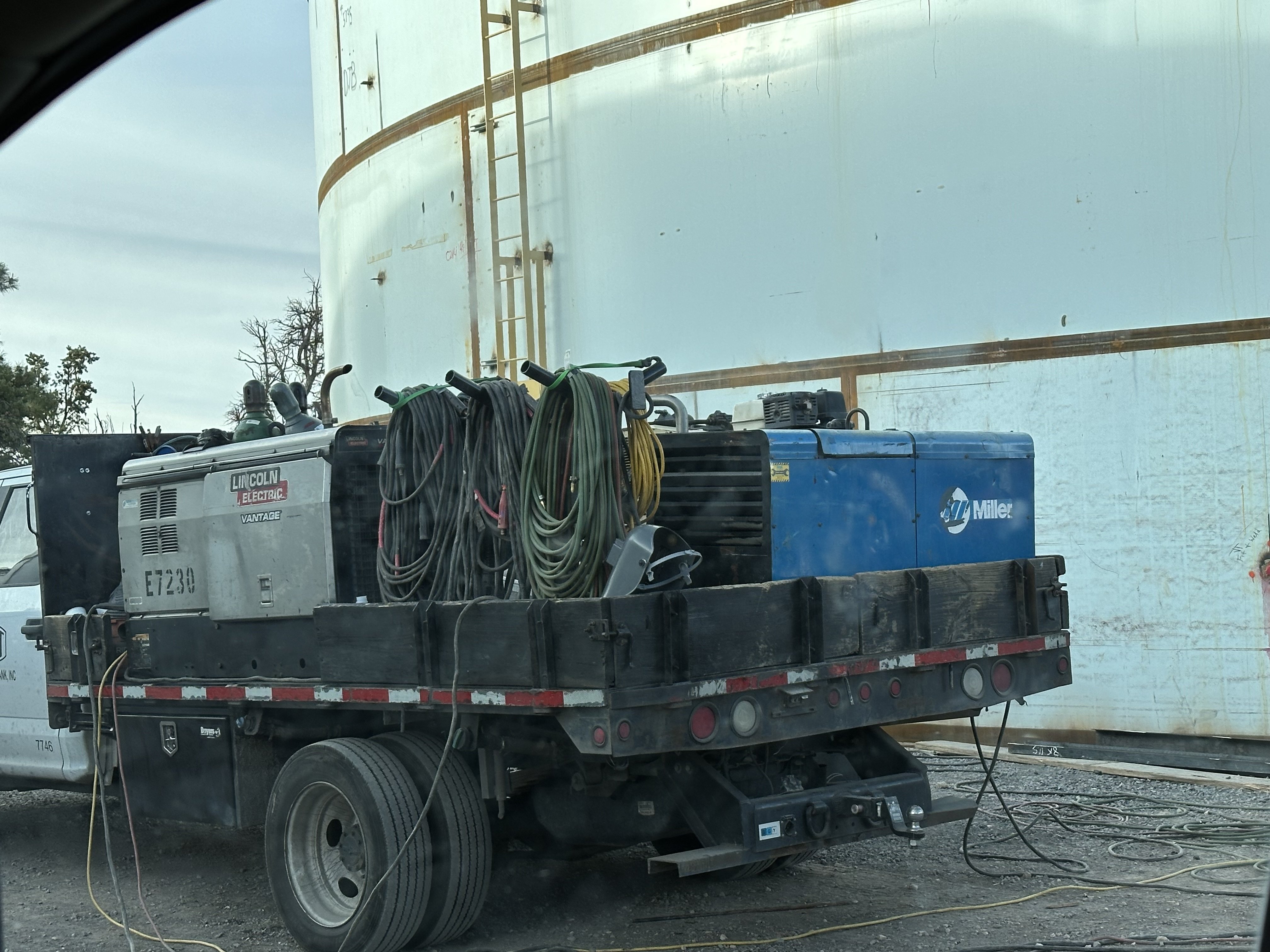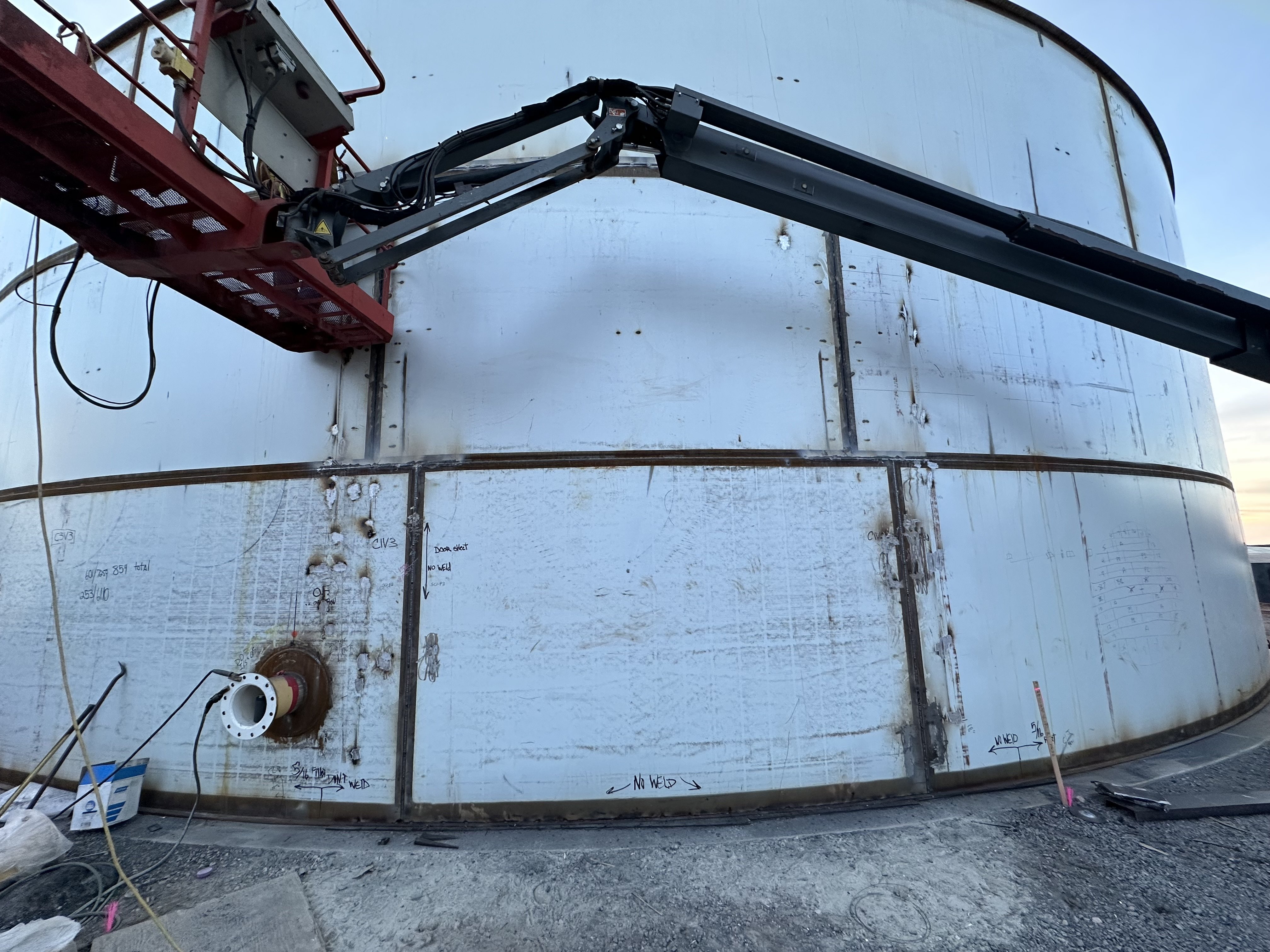The Crucial Role of Container Welding Assessment in Ensuring Structural Honesty and Safety And Security Conformity in Industrial Applications
In the realm of commercial applications, container welding inspection emerges as an essential component in protecting architectural honesty and making sure conformity with security policies. Utilizing a mix of methods such as aesthetic analyses and advanced screening approaches, these inspections serve to determine and minimize possible problems prior to they escalate into considerable risks.
Significance of Storage Tank Welding Evaluation

Ensuring compliance with sector criteria and guidelines is one more considerable aspect of tank welding evaluation. Governing bodies mandate stringent standards for the construction and maintenance of tank, and complete evaluations aid organizations abide by these requirements. Non-compliance can result in serious charges, including fines and shutdowns, even more emphasizing the demand for strenuous inspection procedures.
Furthermore, container welding inspection plays a vital duty in keeping operational efficiency. In summary, the relevance of container welding inspection lies in its capacity to protect public wellness, secure the environment, and guarantee compliance with regulative structures.
Trick Evaluation Strategies
Effective tank welding evaluation depends on a selection of vital strategies that make certain thorough evaluation of weld high quality and architectural honesty. Amongst one of the most widespread techniques are visual assessment, ultrasonic screening, radiographic testing, and magnetic particle testing - Tank Welding Inspection. Each approach uses special benefits in assessing different elements of the weld
Aesthetic examination functions as the first line of protection, allowing assessors to recognize surface issues, abnormalities, or variances in the weld bead. Ultrasonic testing uses high-frequency sound waves to detect inner problems, such as cracks or gaps, offering a comprehensive analysis of weld honesty. This method is specifically reliable in discovering problems that might not show up externally.
Radiographic testing makes use of X-rays or gamma rays to produce pictures of the welds, revealing inner interruptions and offering a permanent document for future recommendation. This technique is highly reliable for vital applications where the danger of failure should be reduced.
Lastly, magnetic particle testing is used to determine surface area and near-surface problems in ferromagnetic materials. By applying magnetic areas and fine iron particles, examiners can determine stoppages that could endanger the architectural honesty of the storage tank. With each other, these strategies create a robust framework for ensuring high-grade welds in commercial applications.
Compliance With Safety Requirements

Routine evaluations play a crucial duty in ensuring conformity by recognizing prospective failings or discrepancies from prescribed requirements. Inspectors are trained to evaluate weld top quality, validate product specifications, and evaluate the general architectural honesty of tanks. Their knowledge is crucial in ensuring that welding procedures fulfill the called for safety and security standards.
Furthermore, compliance with safety and security criteria not just secures workers yet likewise safeguards the setting from possible threats such as leaks or disastrous failures. Organizations that focus on safety conformity are much better positioned to mitigate threats, boost functional performance, and cultivate a culture of safety within their workforce. In recap, preserving strenuous conformity with security standards is essential for the successful procedure of container welding activities in commercial setups.
Benefits of Regular Inspections
Normal assessments are essential to maintaining the architectural integrity and safety of bonded containers. These assessments offer a systematic strategy to determining potential defects or weaknesses in the welds, ensuring that any problems are addressed before they escalate into significant failures. By carrying out regular evaluations, organizations can detect corrosion, exhaustion, and various other kinds dig this of damage that might endanger storage tank performance.
Moreover, constant examinations contribute to conformity with market policies and requirements. Adhering to these guidelines not just mitigates legal dangers however also enhances the organization's online reputation for security and integrity. Regular inspections cultivate a proactive security society, urging employees to recognize and focus on the relevance of equipment stability.

Study and Real-World Applications
Study and real-world applications illustrate the substantial influence of effective tank welding assessment methods. One significant instance is a large petrochemical center that faced substantial operational browse around these guys interruptions because of leaks in tank. Complying with the implementation of extensive welding assessment procedures, consisting of visual and ultrasonic testing, the facility determined important flaws in weld joints that might have resulted in catastrophic failures. This aggressive strategy not only prevented ecological threats yet additionally saved the business millions in potential cleaning expenses and regulatory penalties.
Likewise, a water treatment plant executed an extensive assessment program for its storage tank welding operations - Tank Welding Inspection. By integrating non-destructive screening methods, the plant had the ability to spot early signs of rust and fatigue in weld joints. This timely intervention extended the lifespan of the storage tanks and made certain compliance with security policies, hence protecting public wellness
These study highlight the value of normal and methodical storage tank welding examinations. By prioritizing these methods, sectors can reduce threats, improve architectural honesty, and make certain conformity with security criteria, ultimately causing boosted operational effectiveness and lowered liabilities.

Final Thought
In final thought, tank welding evaluation is an essential component of keeping structural integrity and safety in commercial applications. Using numerous assessment methods ensures very early discovery of click reference prospective imperfections, consequently stopping devastating failures.